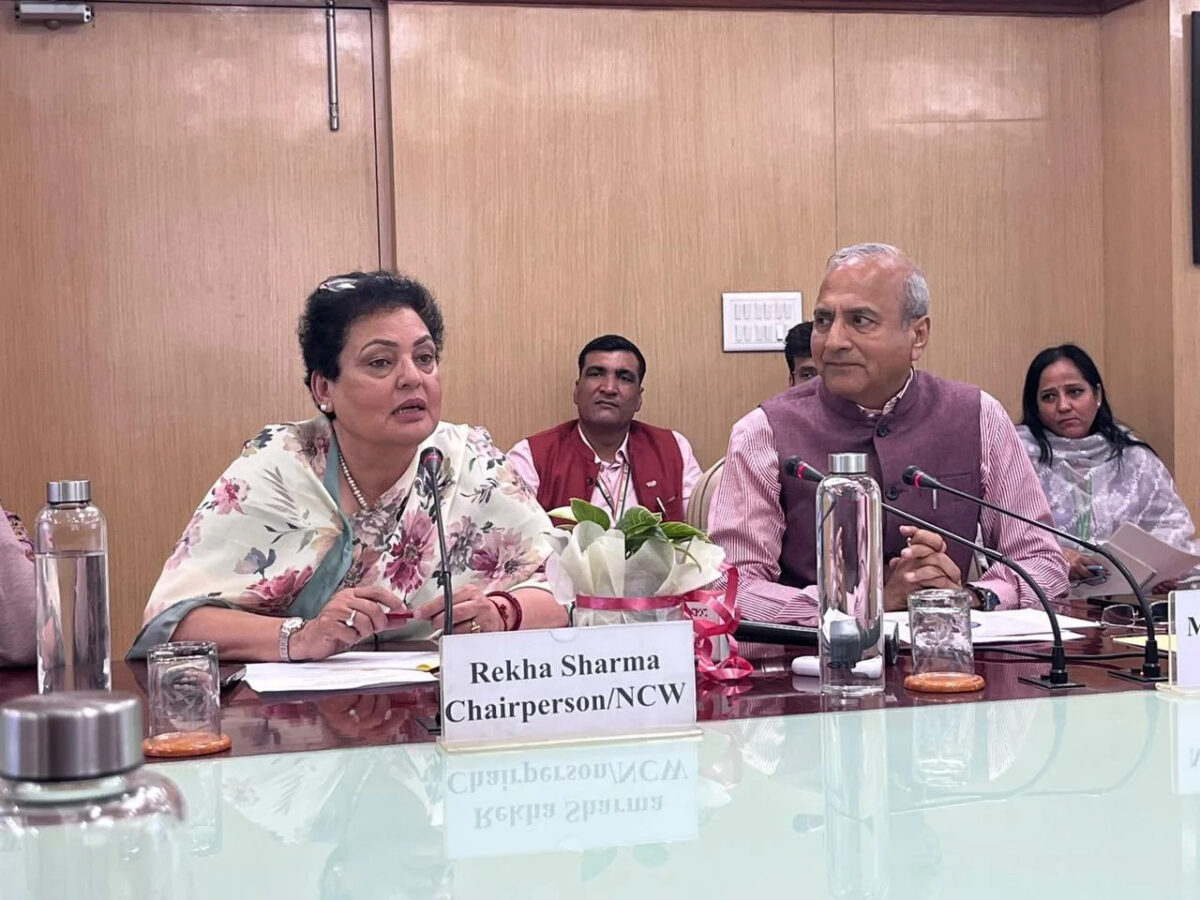- The National Commission for Women (NCW) and the Railway Protection Force (RPF) have signed a Memorandum of Understanding to prevent human trafficking on the Indian railway network.
About the National Commission for Women (NCW)
- The NCW is the statutory body in charge of advising the government on all policies affecting women.
- It was founded on January 31, 1992, following the requirements of the Indian Constitution as outlined by the National Commission for Women Act of 1990.
- Jayanti Patnaik was the commission’s first head.
- The Indian Constitution contains no provisions that are explicitly designed to benefit women inherently.
- Articles 15(3), 14, and 21 protect and safeguard women. They are more gender neutral.
Objectives
- The NCW’s mission is to represent the rights of women in India and to offer a forum for their issues and concerns.
- Dowry, politics, religion, equitable representation for women in jobs, and labour exploitation have all been addressed in their efforts.
- They also discussed police mistreatment of women.
Composition of the NCW
The Commission will consist of:
- Chairperson: To be appointed by the central government.
- Five members: To be nominated by the Central Government from among persons of ability, integrity, and standing who have had experience in law or legislation, trade unionism, management of an industry with potential for women, women’s voluntary organisations (including women activists), administration, economic development, health, education, or social welfare;
- Special Representations: At least one member each from the Scheduled Castes and Scheduled Tribes.
Powers of NCW
- Provide consultation on all significant policy issues affecting women.
- Issuing summons to examine documents and witnesses.
- Requesting a copy of any public record from a court or office.
- Receiving evidence through affidavits
- Discovery and production of documentation
- Summoning and Enforcement
Functions of NCW
- Submission of Annual Reports: Table reports should be presented to the Central Government every year, as determined by the commission. These papers concentrate on the operation and effectiveness of the safeguards.
- Investigation and Examination: The Constitution and other laws mandate proper investigation and examination, with the primary goal of preserving women’s rights.
- Law Review and Scrutiny: All laws are constantly reviewed and scrutinised, with appropriate revisions and changes made to meet the needs of the modern world.
- Prevention of Violations: Ensuring that women’s rights are not violated and taking appropriate action in such circumstances.
- Handling Complaints and Suo Motu Matters: Handling complaints and suo motu matters involving the deprivation of women’s rights, with a focus on enacting legislation that benefit women.
- Assessment of Development and Progress: Evaluating the development and progress of the women’s community at the national and state levels.
- Identification and Mitigation of Systemic Limitations: Understanding the system’s constraints and developing strategic plans and procedures to address them effectively.
Issues encountered by NCW
- Limited Enforcement Power: The NCW is only advisory and lacks the authority to enforce its decisions, frequently acting only after problems are brought to light.
- The Commission lacks constitutional status, which means it has no legal authority to summon police personnel or witnesses.
- Dependence on Grants: NCW’s functions are significantly reliant on grants provided by the central government, with insufficient financial help to meet its requirements.
- Limited Autonomy in Member Selection: The Commission lacks the authority to select its own members, limiting its autonomy and effectiveness.
Source: https://pib.gov.in/PressReleaseIframePage.aspx?PRID=2015613#:~:text=The%20National%20Commission%20for%20Women%20and%20the%20Railway%20Protection%20Force,RPF%20Inspector%20General%20Sarvapriya%20Mayank.

